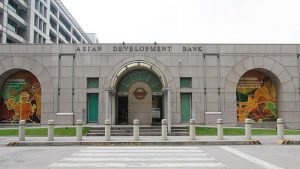THE Asian Development Bank (ADB) said it is seeking board approval this year for a $500-million project to reduce regulatory barriers for businesses in the Philippines.
ADB Country Director for the Philippines Andrew Jeffries told reporters that the project, known as BEST, is in the bank’s board approval pipeline this year.
“One of them I mentioned… (is) the BEST program, Business Environment Strengthening with Technology ,” he said on the sidelines of an event on Thursday.
The bank is working with the Anti-Red Tape Authority (ARTA) and the Board of Investments (BoI) to implement the program, he said.
In a concept note, the ADB described BEST as supporting and strengthening the government’s efforts to enhance and improve the business environment, with the goal of elevating the number of startups as well as investment.
High logistics costs remain a challenge to Philippine competitiveness, Mr. Jeffries added, citing geographical factors.
The Philippines has some of the highest logistics costs in ASEAN, with logistics accounting for 27% of the cost of goods.
Corresponding rates are 16% for Vietnam and 11% for Thailand.
“A big part of our program is working on those types of infrastructure projects, which again gets back to overall competitiveness,” he said.
“There was another Department of Transportation report that estimated the cost of port congestion at about P43 billion a year.”
Separately, Gonzalo J. Varela, World Bank lead economist for Brunei, Malaysia, the Philippines and Thailand, said energy and transport remain key factors affecting costs in the Philippines, to the detriment of investment.
“If you think about logistics costs, there’s high logistics costs, accumulation economy, this is an economy that still has very strict cabotage restrictions,” he said in a panel discussion.
Cabotage refers to the right of shippers to operate within a given country.
Mr. Varela said more competition is needed in sea transport because of the current high prices. — Aubrey Rose A. Inosante

